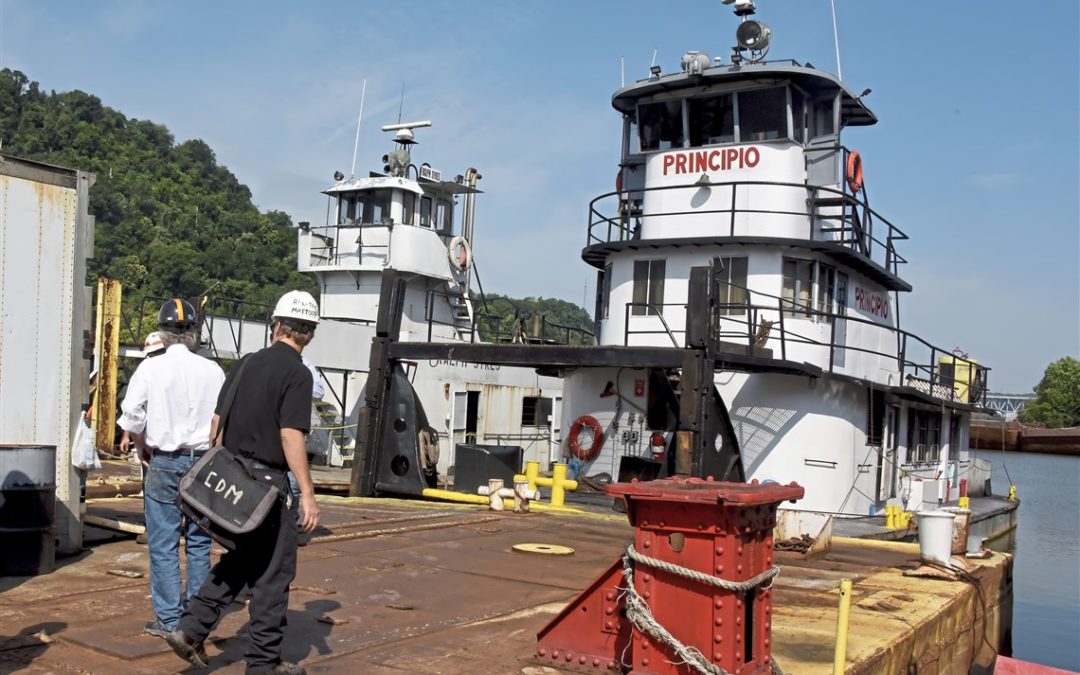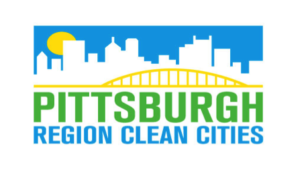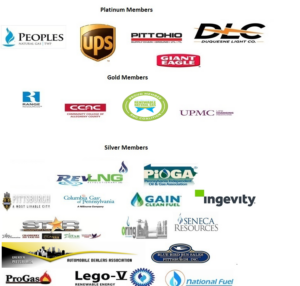by Jeff Twardy | Jan 31, 2020 | Articles
The application period for the Pennsylvania FAST Act Corridor Infrastructure Grant opened on January 24, 2020. DEP will accept applications until 4 PM on Tuesday, March 24. Applications must be submitted via the Electronic Single Application (ESA) System. Click here to apply. The Pennsylvania FAST Act Alternative Fuel Corridor Infrastructure solicitation is a special solicitation under the Alternative Fuels Incentive Grant Program (AFIG) designed to support the installation of alternative fuel infrastructure along Pennsylvania Interstate Highway Corridors. Approximately $1 million in grants is available to install public-use electric, hydrogen, propane, and compressed natural gas refueling infrastructure along certain highway corridors in Pennsylvania. Learn more at our website: ...
by Jeff Twardy | Dec 23, 2018 | Articles
The U.S. Environmental Protection Agency (EPA) anticipates awarding approximately $40 million in competitive grant funding for the Diesel Emissions Reductions Act (DERA) Clean Diesel Funding Assistance Program. The Program is soliciting applications nationwide for projects that achieve significant reductions in diesel emissions in terms of tons of pollution produced and exposure, particularly from fleets operating in areas designated by the EPA Administrator as poor air quality areas. Application packages must be submitted electronically to EPA through Grants.gov (www.grants.gov) no later than Wednesday, March 6, 2019, at 11:59 Eastern time to be considered for funding. Note the attached file and the information detailed below. For more information, also visit: https://www.epa.gov/cleandiesel/clean-diesel-national-grants Important Dates Activity Date Request for Applications (RFA) OPENS Thursday, December 20, 2018 Information Session Webinar LINK TO WEBINAR Exit Call-in Number: 1-202-991-0477 Access Code: 414-9804# Tuesday, January 8, 2019 at 3 p.m. ET Information Session Webinar LINK TO WEBINAR EXIT Call-in Number: 1-202-991-0477 Access Code: 414-9804# Wednesday, January 9, 2019 at 2 p.m. ET Frequently Asked Questions Document (FAQ) (13 pp, 357 K, December 19, 2018, About PDF): Deadline for Submittal of Questions February 22, 2019 at 4 p.m. ET Deadline for Applications Wednesday, March 6, 2019, at 11:59 p.m. (ET) Notification of Selected Applicants April 2019 Funding of Awards May-October, 2019 Supporting Information for RFA 2019 Sample Project Narrative (WORD)(15 pp, 674 K, December 2018) 2019 Sample Application Fleet Description (Excel)(712 K, December 2018) 2019 Priority Area List (PDF)(13 pp, 1 M, December 2018) 2019 Sample Drayage Operating Guidelines (PDF)(2 pp, 161 K, December 2018) Clean Diesel Funding Assistance Program FY 2019 Transport Refrigeration Unit (TRU) Factsheet(3 pp, 76 K, December 2018, EPA-420-F-18-028) Frequently Asked Questions...
by Jeff Twardy | Oct 28, 2017 | Articles, Odyssey Day
by Jeff Twardy | Oct 28, 2017 | Articles
ALTERNATIVE FUELS INCENTIVE GRANT PROGRAM (AFIG) The Pennsylvania FAST Act Alternative Fuel Corridor Infrastructure solicitation is a special solicitation under the Alternative Fuels Incentive Grant Program (AFIG) designed to support the installation of alternative fuel infrastructure along Pennsylvania Interstate Highway Corridors. Approximately $1 million in grants will be available to install: public-use electric, hydrogen, propane, and compressed natural gas refueling infrastructure along the highway corridors in Pennsylvania. Corridors which are designated as alternative fuel corridors by the FAST Act as “Signage Ready” or “Signage Pending” by the Federal Highway Administration meaning specific sections of interstates located in Pennsylvania (I-76, I-276, I-476, I-70, I-95, and I-80) will be the sole focus of this grant program. Individual project awards will be capped at $500,000 and the grant will provide up to a fifty (50) percent reimbursement. Applicants may submit more than one application if they are seeking funding to install refueling installations on separate highway segments. Depending on the fuel type proposed and application details, a project may consist of a single public station, or a series of public stations within a corridor (or multiple corridors) of eligible highway corridors in Pennsylvania. Grant Applications and Due Dates Applications will be received in paper form. Applications will be accepted starting September 30, 2017. Applications received after 4:00 pm on November 17, 2017, will not be accepted. Click on the link to download a copy of the Grant Guidelines document and Application: 2017 AFIG Fast Act Corridor Infrastructure Grant Eligible Applicants The following Applicants are encouraged to apply: Pennsylvania municipal authorities, political subdivisions, non-profit entities, corporations, and limited liability companies or partnerships incorporated...
by Jeff Twardy | Oct 28, 2017 | Articles
OAKDALE (KDKA) — There are plenty of sources to fuel vehicles these days, and those vehicles were all on display at the Community College of Allegheny County’s Oakdale campus Friday. It looked like an auto show — rows upon rows of cars, trucks and buses. This was “Odyssey Day,” designed to introduce the public to alternative fuel and vehicles with advanced technology — everything from natural gas buses to school buses that run on propane, to the all-electric Chevy Bolt and the Tesla. “There’s no one technology that’s probably better than the other per se because it’s about what fits your market and where you’re at,” Rick Price, executive director of the Pittsburgh Region Clean Cities, said. He says many large companies like UPS and Giant Eagle have already embraced the technology, powering much of their fleet with alternative fuels. It’s important, says Price, not only for the environment, but also to give the United States fuel independence. “If we can get stuff with cleaner air, greenhouse gases and also be kind of independent from what happens in other parts of the world,” Price said. CCAC has been a large part of that. “We have a great relationship here with the college because they teach alternative fuel classes here at the college, and there’s a number of vehicles out there that we’ve outfitted for them to do that,” Price said. Please click here to read more and watch the...

by Jeff Twardy | Aug 21, 2017 | Articles
From the Pittsburgh Post-Gazette Diesel-powered towboats on the nation’s inland waterways spew some of the dirtiest exhaust emissions, but an experiment on a vessel docked in the Monongahela River eventually could help clear Pittsburgh’s air. Pittsburgh Region Clean Cities, a local nonprofit that’s part of the U.S. Department of Energy Clean Cities program, is leading the project, which will use natural gas to power the Principio, a towboat that has been pushing barges on the three rivers since the 1940s. It is currently docked in Braddock. The retrofit of the towboat, one of three operated by Gulf Materials LLC, will cost about $1.4 million and use $730,000 from the U.S. Maritime Administration, and other funding, including a pending grant from the Allegheny County Health Department. Lutitia Clipper, project manager and natural gas vehicle expert, said the project is “precedent setting.” “Our project is the first inland waterway diesel-powered conversion to natural gas,” she said. Pending approval from the U.S. Coast Guard, the retrofit design — a dual-fuel system that would decrease up to 60 percent of the Principio’s diesel usage — could be a model for other diesel towboats, Ms. Clipper and the team hope.. Between 2,000 and 4,000 inland towboats operate in the U.S. The exact number is unclear. In the Pittsburgh region there are 261 boats, which moved 26.4 million tons of coal, gravel and other commodities on the three rivers in 2015. While some ocean ships — as well as inland boats in other countries — are already operating on natural gas, that’s not the case in the U.S. All inland towboats in the U.S. operate using diesel engines....


